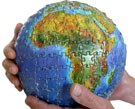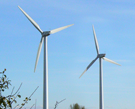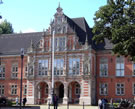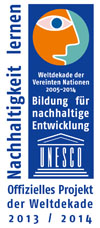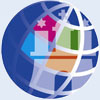Klimaportal der Lokalen Agenda 21 im Raum Harburg
Sustainable development
Generally speaking, sustainability is the ability of a system to keep itself alive by maintaining the necessary processes.
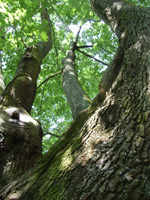 Accordingly, a sustainable development of a system avoids using up the resources it feeds on in the process of growing. Due to man's considerable impact on the eco-systems of our world, its future depends heavily on "human sustainability": a sustainable mode of living. Such a way of life is capable of fulfilling the requirements of a sustainable development - which is essentially a "development which meets the needs of the present without compromising the ability of future generations to meet their own needs" (Brundland Report 1987). This can only be achieved if economic growth keeps within the bounds of environmental constraints (so that nature can "sustain" itself) and provides equitably (in terms of well-being, health protection and prosperity etc) for all people across the globe today and tomorrow.
Accordingly, a sustainable development of a system avoids using up the resources it feeds on in the process of growing. Due to man's considerable impact on the eco-systems of our world, its future depends heavily on "human sustainability": a sustainable mode of living. Such a way of life is capable of fulfilling the requirements of a sustainable development - which is essentially a "development which meets the needs of the present without compromising the ability of future generations to meet their own needs" (Brundland Report 1987). This can only be achieved if economic growth keeps within the bounds of environmental constraints (so that nature can "sustain" itself) and provides equitably (in terms of well-being, health protection and prosperity etc) for all people across the globe today and tomorrow.
Sustainable development and Agenda 21
Agenda 21 is a global action programme for human sustainability and functions as a framework for the environmentally sound, equitable and economically robust development of the world. For its successful implementation, politicians, businesspeople, scientists, the industry, the public and private sector, non-governmental organizations (NGOs) and the general public are to initiate and further the so-called "Agenda 21 process". This process thrives on people's involvement as individuals, groups, and project partners to tackle issues such as CO2 emissions and energy consumption, salination and loss of water resources, deforestation, decreasing biodiversity, health problems, overpopulation and poverty, waste management, transport etc.
Read more about the origin of Agenda 21
Chris Baudy

